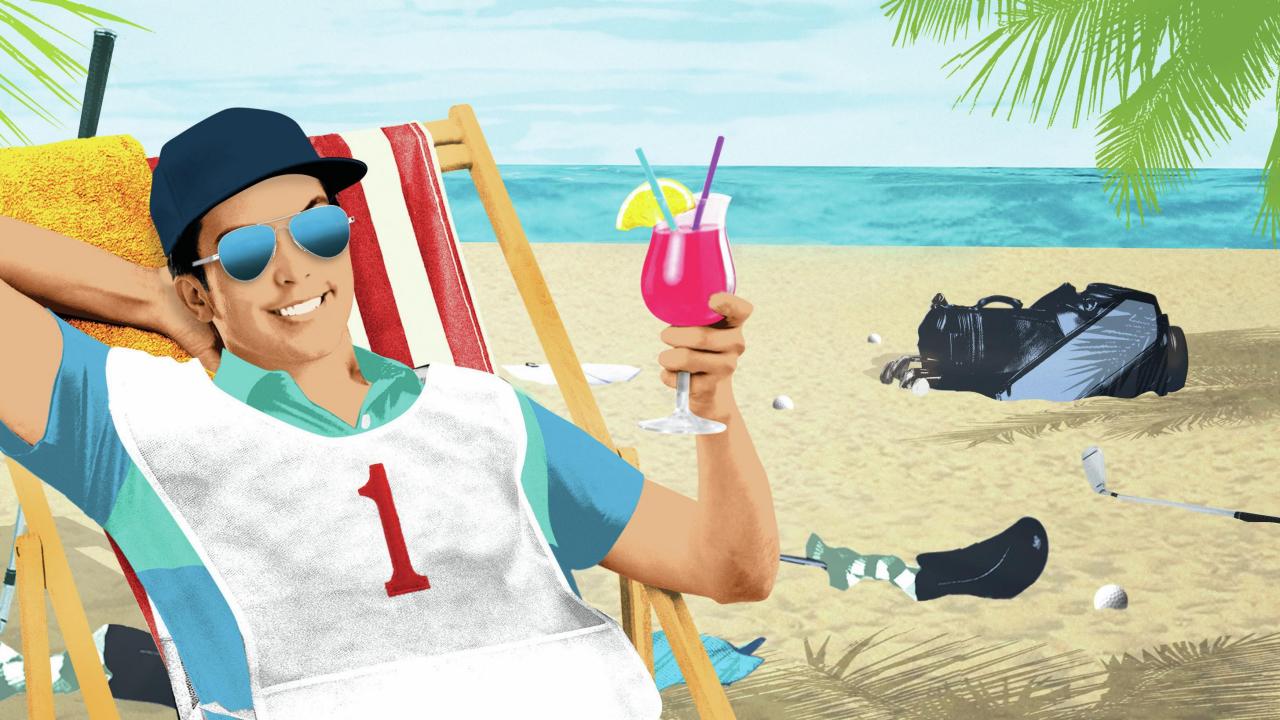The relationship between a player and caddie is intricate, thrilling, messy, all over the emotional spectrum. It’s basically marriage without, ahem, you know what we mean. So winning a major is, well, as close as we get to having fun in the bedroom.
A lot of caddies grew up as players. If you’ve held a club in your hand, at some point you’ve dreamed of putting on the green jacket or raising the claret jug. Though we’re no longer the ones hitting the shots, those dreams remain. So when it comes to fruition, forget the money or the competition high; success is a validation of everything we’ve done to get to this moment. That is an experience you cannot buy.
OK, we don’t forget about the money. That’s a pretty damn big part of this. The cut from the winner’s purse is a nice six-figure payday that takes care of the mortgage for the foreseeable future. It also gets you 100 World Golf Ranking points, which should get you into the World Golf Championship events for two years. That’s guaranteed good money. Last place at the WGC-Match Play, for instance, is $50,000 to the player. If your guy plays in three of the WGC events and doesn’t mail it in, that’s another $40,000 you can bank on. Provided the major wasn’t a one-off—as in you have a few top 10s to go with that trophy—you’re playing in the Tour Championship at East Lake, and as long as your player isn’t a jackass, you’re getting a piece of the FedEx Cup bonus pie.
‘We still know where we are on the pecking order.’
Undercover Caddie: Players aren’t the only ones who choke
The off-the-course dough is nice, too. Some of the engagements that come my way from connections I make at the pro-ams are amazing. Most are country-club outings or high school stags, which is an easy grand and a hell of a time. I’ve been asked to talk for universities, businesses and teams, with a number of sport psychologists reaching out to glean what they can about player-caddie synergy. Small confession: I once had a chat with a Canadian professor who wanted to know about the “mind-set of a champion.” Halfway through I realized he thought I was a player. I should have told him, but I once got food poisoning at the Canadian Open, so I considered it retribution. These gigs might not seem glamorous, but they pay well, and the pay adds up.
After winning a major, the player and caddie have a new schedule that brings perks in two ways. You’re in every major, the Tournament of Champions, the aforementioned WGCs. If it matters, you’re there. Better yet, now that your player is enshrined in that major glory, he’s likely to take more time off than in years past—maybe three or four events off his calendar. That means more vacation for me.
A major win also brings a newfound respect from fellow caddies. They know you’ve been a part of something incredible, something they want to be a part of. How much respect you get depends on the relationship with your player. If a caddie takes over for a player who was already good, you give him a nod and a pat on the back. If a caddie takes a younger player or someone lost in the desert to the promised land, you kneel at that man’s feet. One of our own who saw a big jump in esteem was Brennan Little, who won the Masters with Mike Weir and the U.S. Open with Gary Woodland, two different events with two vastly different players.
Caddie Confidential: Helen Storey takes us inside the ropes with Lee Westwood
A final bonus is job security. Clearly things are humming with you and your guy, and the major likely brings another two years of goodwill. Should things go bad, well, that’s OK, too, because you don’t see many caddies with a major on their résumé looking for work for long.
It’s not all strawberries and wine. When your player wins a major, that means more attention, more leeches trying to get in on the action. That can muddle your relationship with your player. There’s also pressure to replicate that success. Personally, I love that feeling; I’m a competitive guy. But I’ve seen it break other caddies who let their guard down, thinking they had it made only to realize they were just getting started.
We still know where we are on the pecking order. I found that out over dinner with my guy and his apparel sponsor. We had been seated for 30 minutes, but it was a big group. I went to the bathroom. When I came back, I had to wait for another table to move a seat in. As I stood, an apparel exec gave me his drink order. Now anytime my player hits a bad shot, he’ll mumble in my direction, “Hey, I could use a whiskey sour. Thanks.” —WITH JOEL BEALL









